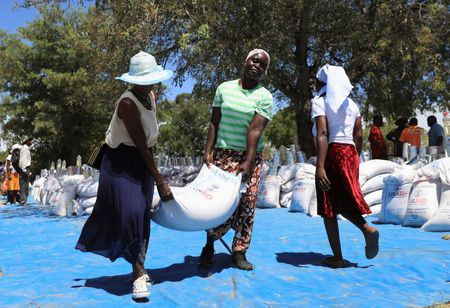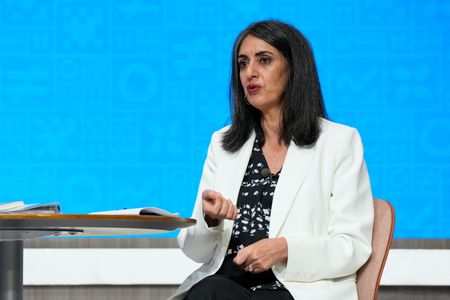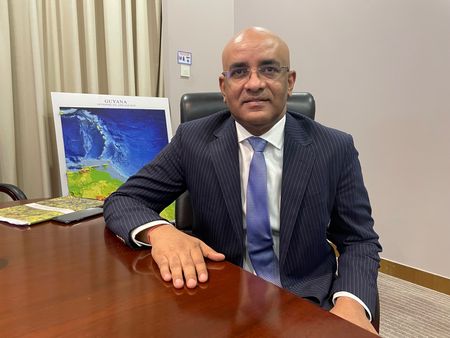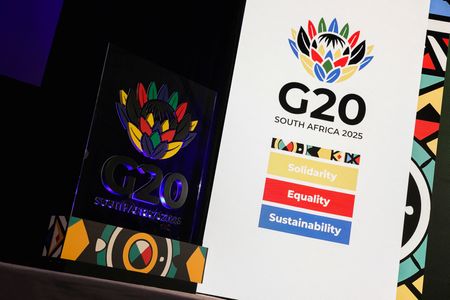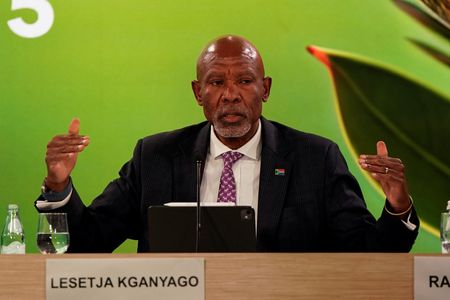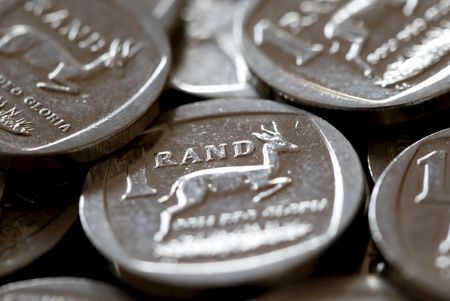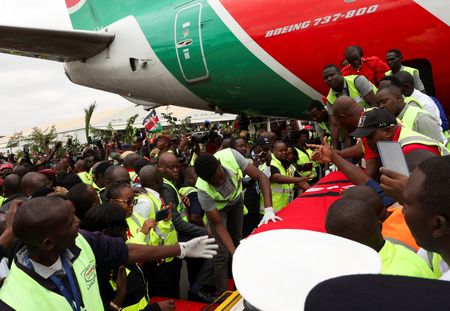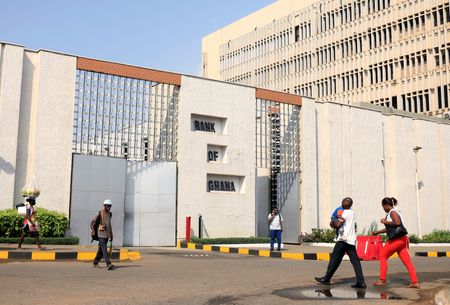By Colleen Goko and Karin Strohecker
WASHINGTON/JOHANNESBURG (Reuters) -The International Monetary Fund said on Thursday it remains unable to lend to Zimbabwe due to the country’s outstanding arrears, but praised recent economic reforms as discussions progress on a potential staff-monitored program.
“Zimbabwe’s ability to borrow financially from us is constrained by the fact that they have arrears through the African Development Bank, the World Bank, and other bilateral creditors,” Abebe Aemro Selassie, head of the IMF’s African Department, told Reuters.
He noted that the global lender has been aiding Zimbabwe through a structured dialogue framework aimed at demonstrating its government’s commitment to sound macroeconomic policies.
“And we are hoping to reach agreement on a staff-monitored program in that context,” Selassie added.
Zimbabwe, which owes approximately $12.2 billion in external arrears, is also seeking to secure $2.6 billion in bridge financing by mid-2026 as part of its broader debt resolution efforts.
A staff-monitored program is an informal arrangement between an IMF member country and IMF staff to monitor the member country’s economic program without requiring formal endorsement by the IMF’s executive board.
“We are very actively engaged, working with the governor and the minister to find a solution,” Selassie said.
Selassie also commended Zimbabwe’s fiscal and monetary reforms, citing reduced central bank financing as a critical measure to control inflation and stabilize the exchange rate.
Zimbabwe’s finance ministry said its delegation had “fruitful deliberations” with the IMF and World Bank during the annual meetings this week.
It also confirmed that an IMF mission is scheduled to visit Harare at the end of October to discuss and align on the proposed staff-monitored program, which the ministry described as “a key priority” for Zimbabwe’s government.
(Reporting by Colleen Goko and Karin Strohecker; Editing by Paul Simao)

